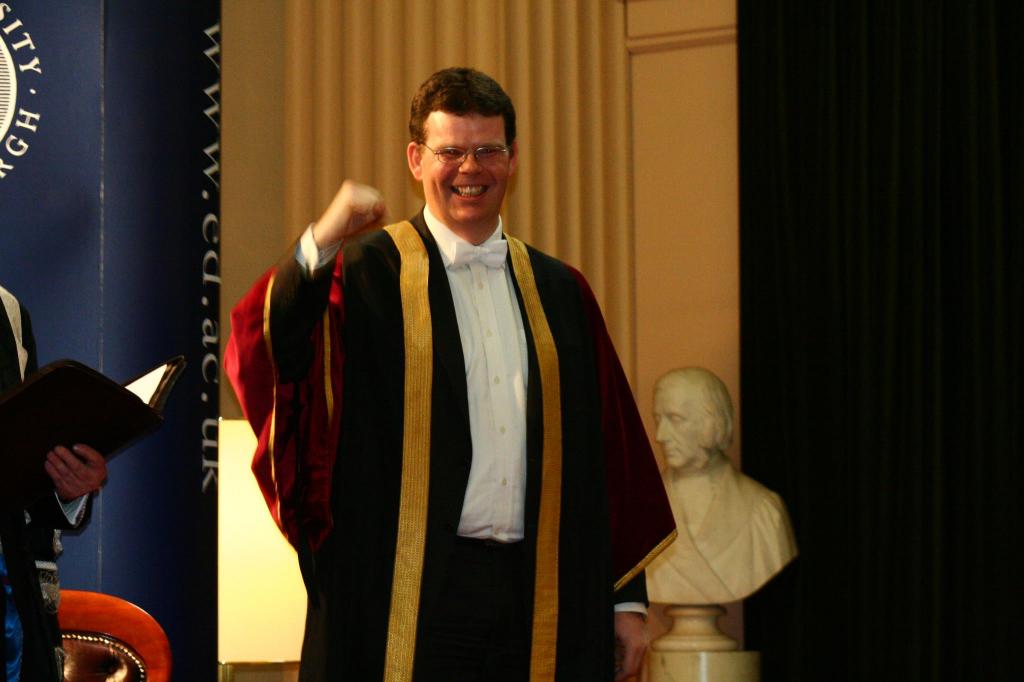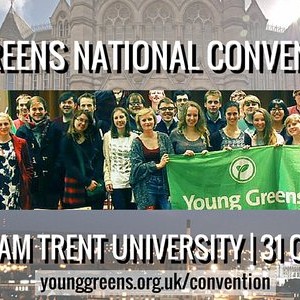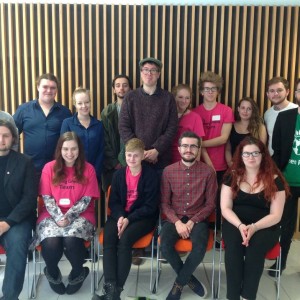Peter McColl Rectorial Address

The five Scottish Universities with roots in the pre-modern era each have Rectors. The Rector presides at the University’s governing body, the Court, and is elected by students (and at Edinburgh University, staff).
I was elected Rector of the University of Edinburgh in an unopposed election in January this year. I was ‘installed’ last week in a ceremony. Here is my address:
“Principal, Ladies and Gentlemen, and for those of you who read the Journal, Comrades,
I am delighted to be able to address you today. I am delighted to be joined by so many you, and to have received so many good wishes. I worked on the campaigns of the last four Rectors of this University, so it’s good to finally make it to the podium myself. When they told me I was to be processed, maced, robed and chaired, it all sounded ever so slightly medieval, so I’m pleased that it’s been pain free so far. The Chairing is, however, still to come.
I must start with some thanks. Firstly to the University for being so open in the period since I became Rector. The ceremony today is the stalwart work of Susan McGinley. I’m grateful to her for pulling all of this together. I’m also grateful to Victoria Bennett, who has the patience to put up with me. I wouldn’t be here if it weren’t for Mike Williamson, who popped the question back in September – though not on one knee – however, if you’ve got a shiny ring I’m sure I’d be pleased to take it off you.
I’m grateful to McAsh, whose work meant I was able to garner the signatures to get elected, and was prepared to run a big campaign had anyone been brave enough to challenge me. I’d like to thank the students who supported me and who have been so welcoming. My parents have made the journey from Belfast today to be here, and I’m very grateful to them. Finally, I’m grateful to my partner Maggie. The Earl of Minto, when Rector from 1911-14 brought the wrath of students upon himself by refusing to give a Rectorial address. Maggie has been subject to me trying to deliver this address on an almost daily basis since mid-January. She is truly a woman of great patience.
I am aware of significance of the job that lies before me. Having closely observed the work of the previous four Rectors, it will not be easy to match their achievements. Iain Macwhirter, whose work on the review of University governance, has done so much to secure the position of Rector. Mark Ballard was the most committed campaigning Rector I’ve ever seen. Tam Dalyell is a great campaigner against war, and for a new role for Britain in the world. And Robin Harper, whose work on making the University more responsible for its impact on the environment, has made Edinburgh a destination for students wanting to attend an institution which is a world leader in sustainability.
All four help to explain the role that a Rector should play. He or she should be an advocate for students, should take forward issues of student concern and should ensure the good governance of the University. In days gone by students elected high profile people to hear them speak just once in their 3 year term. As you’ll all by now know, you’ll be hearing rather more from me than that. And I’m very grateful for the positive reception I’ve had from all those I’ve spoken to.
It’s a particular pleasure to return to my own University as Rector. I was a student here between 1998 and 2004. I spent a great deal of time soaking up the intellectual vibrancy of the University, I learnt a huge amount as Vice-President of EUSA, and I was able to enjoy a great year as President of People and Planet. For me, Edinburgh University was a truly transformative experience. It was an experience that set me up for life. I hope to be able to ensure that more people are able to enjoy that experience. My determination to protect Universities as seats of learning, not commercial graduate factories, is rooted in my own positive experiences of a learning led University.
So if Robin Harper’s rectorship was about the emerging environmental movement and Tam Dalyell’s about student opposition to the Iraq War, what does my election tell you about students today? Well, things are pretty difficult for students, for graduates and for young people more generally. Youth unemployment is at a record high, graduate unemployment is eye watering. Our generation is suffering the brunt of an economic collapse we had very little part in causing.
And that’s what my nomination as a rector from this generation says. It is a cry of anger from a generation faced with greater responsibility than any since the 1930s and offered less support than any post war generation. The strategy being pursued by the UK government is one of forcing our generation to pay for the mistakes of the past, and forcing us to do so without any help. It is utterly immoral. Those who moved from Eton or Winchester to Oxford where they had their education paid for have no moral authority to exclude so many of our generation from Higher Education. They have still less right to load our generation with debt as part of their plan to shift wealth from the poor to the rich.
Our generation, those born after Thatcher came to power in 1979, has been the subject of a brutal and sociopathic attack in the form of neo-liberalism. We were forced through a school system that had greater and greater levels of competition imposed upon it. We were the first to have to pay for our University education; we have had to work in a service dominated economy that largely fails to provide fulfilling jobs. And now graduates face record graduate unemployment and forced labour schemes designed to rob them of any dignity in the workplace. Truly, we are the first generation to face worse prospects than our parents.
The strategy here, if you haven’t spotted it yet is to make sure that, while those who have enjoyed welfare through their lives can’t have that removed, government can withdraw support one generation at a time. So pensioners living in southern Europe get winter fuel payments and high earning workers in their 60s get bus passes. Today’s students have to pay for their education after they leave school and have a discriminatory lower level of minimum wage until they reach 21. Few significant benefits have been withdrawn from older people, while our generation is forced into a market relationship at every stage of life.
I must be clear here. I don’t think that older people don’t deserve those benefits. I believe we have the common wealth to pay for benefits for all. We are stronger together, and these benefits are very effective at eliminating poverty and ensuring social solidarity. What I am demanding is that we level up the solidarity available to our generation, not level down those enjoyed by other generations.
So what is to be done?
I am hoping to emulate Mark’s excellent record as a campaigning Rector. I hope to follow Iain in strengthening the role of Rector and ensuring transparency and openness in our governance. I want to continue Robin’s good work in making the University a world leader in promoting sustainability. And let’s just hope we don’t have to deal with another foreign war…
Our generation needs spokespeople; it needs to lead the way in creating a better world and it is my mission to support that process. The development of a generational politics is essential to address the gross iniquities that are developing between generations.
But this struggle will not be uncomplicated. Already the criticism has started. The voices similar to those that resisted the development of a gender politics, a politics of race, or of sexuality, are calling for an end to generational politics. And these voices are no more correct about generational politics than they were about gender, race or sexuality. All are important struggles, and all must receive attention if we are to create a better world. In the same way as austerity has hit women harder, so it is hitting young people harder.
Our generation faces graduate unemployment of 20%, a vast reduction in the number of stable, rewarding careers available to us, the indignity and exploitation of unpaid internships. One and a half million people under 30 are unemployed. The average age of first time house buyers is 37. And that’s before you consider the long term impact of climate change and the moves to privatise the NHS in England. We must continue to create a better world, not abandon what we have achieved over the past 70 years.
Another set of voices will claim that it is impossible to reclaim a caring society for our generation. They argue that the only change that is possible is change that damages our situation and that to criticise an iniquitous system is to risk making that system more unfair. This ignores a history of social change in which progressive movements have ended slavery, secured the vote for working people and then women, and stopped apartheid. Had people thought these were unimportant or unachievable, the world would be a much worse place today. We cannot be put off our fight by nay-sayers.
I will be working hard with staff and students to ensure that students are well prepared for the world that faces them. I will be campaigning against the terrible consequences of austerity, generational discrimination and for a better world. A world shaped for the better by staff, students and graduates of this University. A world in which we make things better, not allow things to get worse. And a world in which every young person can look forward to a fulfilling future.
Please accept the invitation to join me in this task.”




Peter,
Like Sandy I am a student of the University who does not share you views. Your rhetoric would suggest that I am an outlier within the student body and yet in my experience this is not even close to the truth.
Throughout your speech you refer to your nomination and election by students and by “this generation”. I think that here you have proffered yourself a legitimacy and support base which I find it hard to justify. As has been mentioned up thread, your nomination was managed very successfully by a small group of vocal and politically active students, and rectorial elections to not offer voters the opportunity to express a wish to reopen elections. If you are going to fight your battles on a platform of student support, it would perhaps be sensible to select those issues where you will genuinely have the support of a majority of the student body (fighting the hidden costs of University courses, improving University feedback and student support) rather than the university into party political issues in a political points scoring exercise.
Finally your decision to use your address to attack those students who have attended large public schools and who are fortunate enough to have their education funded is one which appals me. Perhaps you should consult some of the University’s entrance statistics before simultaneously announcing that you represent all students, and slating a group of your own.
I sincerely hope that your increased involvement in University life will show you the balance of the views of the student body, and allow you to escape the echo chamber in which you have ensconced yourself. You are clearly and eloquent and driven individual, and I would be delighted if you would turn those talents towards the issues in which the majority of the student body is invested, rather than the small but vocal left.
Peter, I actually don’t object to tuition fees I think they are a necessary evil, I don’t brand any conflict the United Kingdom and been involved in an illegal war. And for the record, I am a student, at the university of edinburgh and to say that what part will students disagree with and then state two highly contentious issues really shows your gross oversimplification of youth politics as a homogonised group when actually there is a hugely diverse range of views.
The rector is the students representative on the university council, you represent our views to the council, you dont need to stand up and voice a hatred of the grammar school system, complain about our (free-market driven) service based economy or make open criticism of Margaret Thatcher.
To be quite frank I don’t object to you voicing your opinion on tuition fees (even if i disagree with it) that is clearly your role. What I resent is you drawing divisive party political issues into a speech where you are meant to be speaking as the representative of all Edinburgh University students. Represent the students, stick to your remit, don’t use your position as my representative as your political soapbox.
In my opinion your speech is extremely over political. Your speech leaves me with the feeling that like many in EUSA have done for years you will let your strong political views overcloud your role of representing the views of all students at the university. I feel that the students of the university are now hugely disinterested with EUSA and with the role of rector. James McAsh was elected with only 2029 first preference votes out of a student body of 27,000 that is only 7.5% of students. The turnout in the election for president was only 18.8% and voting only involves logging onto a computer. I think that figure clearly shows a student body who are not interested anymore. It is my opinion that the vast majority of students aren’t interested because EUSA does not represent there views, it represents the loud extreme political views of the minority that are involved in running it.
Now the university has a Rector who is effectively unelected. The students and staff of the University didn’t get to vote for you. You were nominated by a small group of politically active people. Staff and students should have been given the choice to re-open nomination like in EUSA elections. I think not allowing the students and staff to express if they thought you were a suitable candidate for rector is extremely undemocratic.
In you rectorial address you have expressed strong political views that are possibly not the views of the majority of students at Edinburgh who now do not show any interest in EUSA or the election of The Lord Rector. The position of rector has been held by many great figures such as Sir Alexander Fleming, Sir Winston Churchill, Herbert Kitchiner and a total of 5 future prime ministers.
I can only hope that as rector you represent and listen to the majority of students at Edinburgh University and do not allow your political views or the extremist vocal left of those who are active in EUSA to drown out the modest views of the majority of students at this university.
Great speech, honoured to have been mentioned in it!
James McAsh – (Extremely Vocal Left) EUSA President 2012-3
Sandy, Duncan,
Thanks for your comments. I’m not ashamed of my politics, and I always made clear what it was I stood for.
I’m not sure, though, which part of the speech you think students would disagree with? Is it that they want to be charged enormous fees? That they support illegal wars?
Whatever it is that you disagree with I’m not going to hide behind “representing all students” to avoid speaking out on what is wrong or for what is right.
I wholeheartedly welcome your address for the need to increase the transparency of the running of university affairs.
I would however question whether your very strong political views are representative of our university’s student population.
Also how you can attack the current situation in youth unemployment in our country when it is far better than most of the other countries in europe also suffering the effects of the financial crisis. I think maybe you have oversteped the mark in the remits of rector.
Of course you are entitled to your own political views but lets not forget that you are a rector first and formost.
An interesting address. It’s just a shame that someone aiming to stand up and represent all students’ views and opinions had to take such an overtly politicised stance. A lot of what you seek to do is admirable but none the less I’d have hoped you might have taken efforts to encompass all of edinburgh’s diverse student views rather than just the extremely vocal left which are the EUSA establishment. It always was a faint hope though.
Hello Peter, I enjoyed reading your address. Having not gone to university I had no idea what a Rector was about. I thought it was something religious. Your position seems very worthwhile and I hope you manage to effect some changes. Good Luck in your new position.